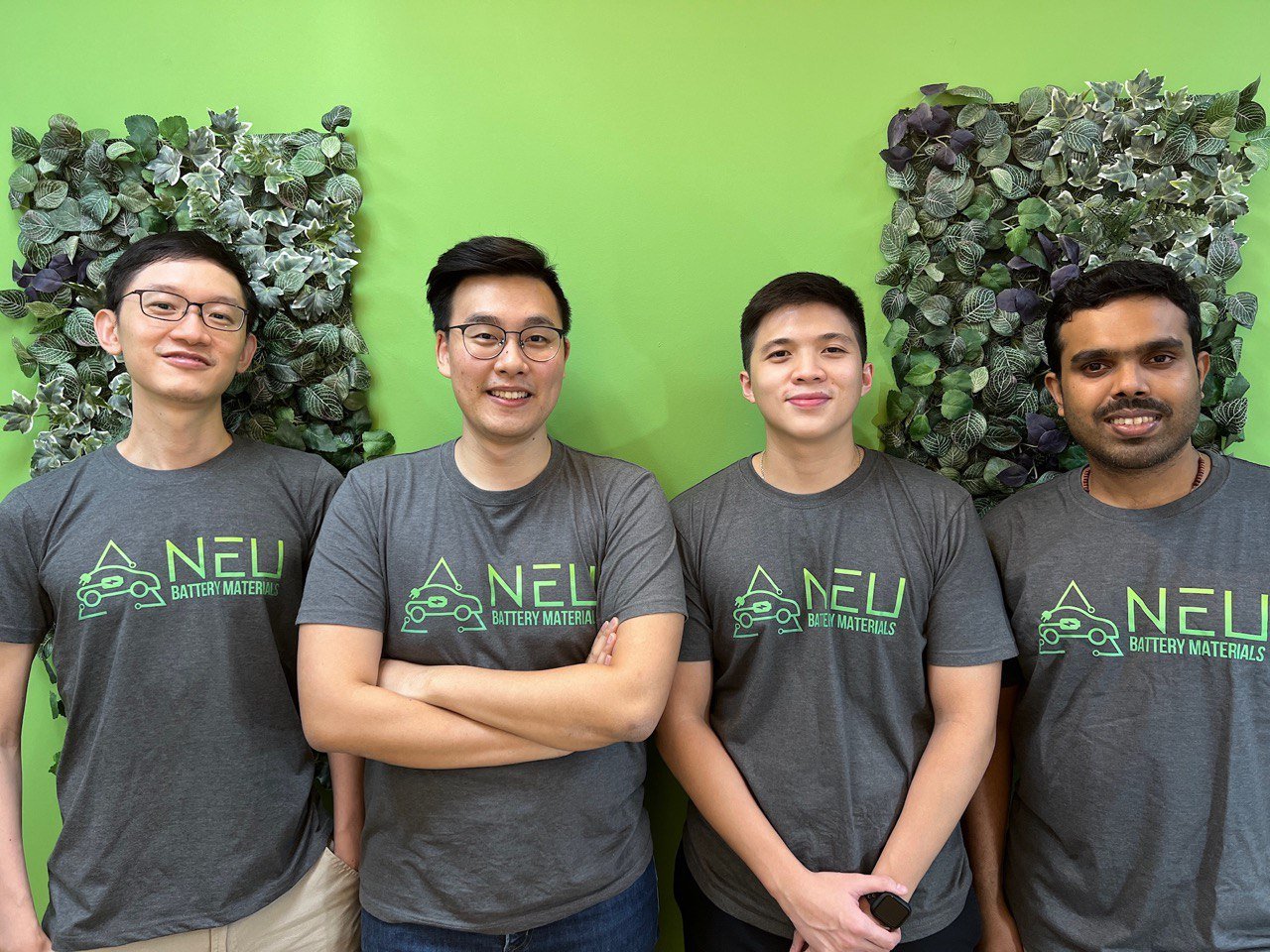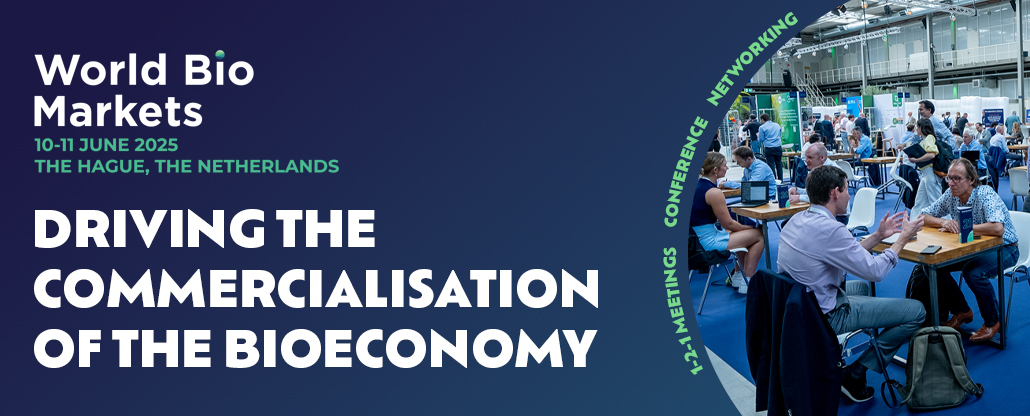Deeptech startup NEU Battery Materials has raised a total of S$800,000 in seed funding from Momentum Venture Capital, the corporate venture arm of SMRT Corporation and Se-cure Waste Management, a battery recycling & processing company in Singapore.
This seed round also includes angel investments from two business angels in the energy storage and sustainability sectors, as well as earlier funding from the NUS Graduate Research Innovation Programme (GRIP). A flagship initiative of the NUS Industry Liaison Office, GRIP consists of three months of intense venture hothousing followed by nine months of incubation support, enabling NUS researchers, inventors, and students to transform the university’s world-class research into deep tech startups. NEU Battery Materials will use this seed funding to build a pilot recycling plant in Singapore to recycle lithium from used lithium batteries.
Lithium batteries are a type of rechargeable battery. They are composed of cells where lithium ions move from the negative electrode to a positive electrode during discharge, and back again during the recharging process. Lithium iron phosphate batteries are a type of battery that uses lithium iron phosphate as the cathode material. They typically are lower in cost, with a long cycle life and low toxicity. Lithium iron phosphate batteries are used in many products, including Electric Vehicles (EVs) and energy storage systems.
Bryan Oh, CEO and Co-founder, NEU Battery Materials: “The demand for lithium batteries is high, due to their everyday use. This demand will continue to increase drastically as EVs become mainstream. However, mining for lithium used in batteries is not an environmentally-friendly process. Furthermore, most lithium batteries are dumped into landfills at the end of their lifespan, creating environmental waste. We want to further develop and bring to market a method for producing sustainable lithium, resulting in clean and sustainable lithium batteries.”
NEU Battery Materials is bringing to market a patented electrochemical redox flow recycling process that was originally invented by Associate Professor Wang Qing, Deputy Head, Department of Materials Science and Engineering, NUS College of Design and Engineering. Assoc Prof Wang is Co-Founder and Advisor to NEU Battery Materials.
Assoc Prof Wang, Co-founder, NEU Battery Materials: “I’ve been conducting research in the area of electrochemistry and flow batteries for the past 20 years, and believe that electrochemical battery recycling is the future, set to replace hydrometallurgy and pyrometallurgy. This recycling process is the first time that it has been demonstrated to be possible to recycle lithium from the cheapest battery type – which is the lithium iron phosphate battery. I am delighted that NEU Battery Materials will be commercialising this technology, and demonstrating its use in battery recycling.”
In order to recycle used lithium batteries, the batteries are first discharged and dismantled. A series of crushing procedures reduces and sorts through the key components of the battery. The remains of the battery are called ‘black mass’ and this then enters the electrochemical redox flow recycling process, which involves the following steps:
- The black mass is put into an anodic reactor tank, which is filled with a proprietary mix of chemicals. These chemicals will react with the black mass, to extract out the lithium. Unlike traditional battery recycling methods, this proprietary mix of chemicals does not include harsh acids (which leads to problems such as waste water). Furthermore, the chemicals are regenerative, allowing multiple cycles using the same batch of chemicals, significantly lowering pollution levels.
- The solution is circulated between the tank and the electrolyzer. Electricity facilitates the movement of lithium across to the cathodic reactor tank.
- The cathodic reactor tank is filled with water, which reacts with the lithium to form aqueous lithium hydroxide.
- The lithium hydroxide is dried, resulting in battery-grade lithium hydroxide powder. This can be sold to battery manufacturers.
To translate this technological process which was developed in a laboratory setting and demonstrate how this technology can be scaled and used to recycle lithium batteries, NEU Battery Materials will use their seed funding to build a pilot plant. To do this, they have partnered with one of their investors, Se-cure Waste Management, a company that handles the recycling of metal waste and scrap materials. NEU Battery Materials will build and operate a 150 square-metre pilot plant at Se-Cure Waste Management’s facility. This pilot plant will be able to process approximately 150 tonnes of lithium batteries a year.
Vince Goh, Managing Director, SWM: “Our partnership with NEU Battery Materials and the setting up of the pilot plant allows Se-Cure Waste Management (SWM) to now handle the recycling of all types of lithium batteries, including lithium iron phosphate batteries, which has never been done before. We have already started sourcing for used lithium iron phosphate batteries, letting our industry contacts know that such recycling is now possible. As lithium is a valuable material, we foresee battery manufacturers’ interest in this development. With NEU Battery Materials’ recycling process available, recycling lithium batteries is now cleaner and greener.”
Source: Startup Weekly





